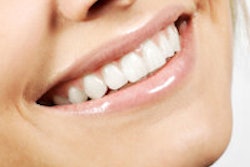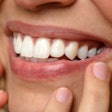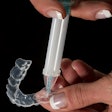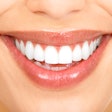
The North Carolina State Board of Dental Examiners illegally thwarted competition by working to bar nondentist providers of teeth-whitening services from selling their products to consumers, according to the U.S. Federal Trade Commission (FTC). The board plans to appeal the decision.
In a unanimous opinion and final order issued December 2, the FTC held that the board sought to, and did, exclude nondentist providers from the market for teeth-whitening services, in violation of Section 5 of the Federal Trade Commission Act.
The board's conduct constituted "concerted action, had a tendency to harm competition, and did in fact harm competition," according to the FTC. These actions led to higher prices and reduced choices for consumers, the agency said.
The FTC's final order requires the board to cease ordering nondentists to stop providing teeth-whitening products or services. It also requires the board to stop informing nondentist teeth-whitening providers and other individuals that it is illegal for nondentists to provide these products or services.
"I am very disappointed to hear that the FTC came to the conclusion that the North Carolina Dental Board acted illegally by stopping nondentists from providing teeth-whitening services," M. Alec Parker, DMD, executive director of the North Carolina Dental Society, told DrBicuspid.com. "And although I am not an attorney, I find it hard to understand how the FTC could arrive at that conclusion when the dental statutes in North Carolina specifically state that removing stains or accretions from teeth constitutes the practice of dentistry."
Dr. Parker said he is also concerned that the FTC's decision does not address patient safety.
"While I understand that the incidence of injuries to patients who receive whitening procedures is quite low, it remains a legitimate possibility and, therefore, a concern for the dental profession," he said. "This is especially true when a consumer is injured at the hands of a nondentist who may not be adequately trained to address the patient's needs or treatment complications should they arise."
The board is appealing the FTC decision, according to Noel Allen, attorney for the board.
"It is just wrong, demonstrably wrong, on several factual conclusions," he told DrBicuspid.com. "And also in some places it [the order] no longer even makes sense."
Original complaint
In North Carolina, teeth-whitening services provided by nondentists often are available at salons, retail stores, and mall kiosks. The state's dentists offer whitening services in their offices and also provide take-home kits.
The FTC's original complaint against the dental board, issued in June 2010, alleged that the board sent dozens of letters instructing nondentist teeth-whitening providers that they were practicing dentistry illegally and ordering them to stop. The board also threatened or discouraged nondentists who were considering opening teeth-whitening businesses and sent letters to mall owners and property management companies urging them not to lease space to nondentist teeth-whitening providers, according to the FTC.
These actions reduced the availability of teeth-whitening services in North Carolina and constituted an anticompetitive conspiracy among the dentists on the dental board, the FTC complaint stated.
In November 2010, the board filed a motion seeking to dismiss the FTC's charges based on the state action doctrine. On February 1, 2011, the board filed a lawsuit against the FTC, accusing the commission of violating the U.S. Constitution in its attempts to keep the board from regulating teeth-whitening services offered by nondentists.
In February 2011, the FTC denied the board's motion to dismiss the FTC's complaint, unanimously rejecting the board's argument that the state action doctrine exempts it from antitrust scrutiny under the Federal Trade Commission Act.
In July, Chief Administrative Law Judge D. Michael Chappell issued an initial decision that concluded the board's actions constituted "unreasonable restraint of trade and an unfair method of competition."
A month later, the board appealed that decision, claiming that Chappell "engaged in a cherry-picking exercise to consider only evidence of potential economic harm caused by exclusionary conduct" and "did not consider the context in which such conduct occurred, i.e., as an enforcement mechanism by a state agency charged by statute with regulating the practice of dentistry in North Carolina."
Board can appeal
The final order issued December 2 upholds Judge Chappell's July 2011 order, with some minor changes, according to the FTC. Specifically, the final order bars the dental board from:
- Directing a nondentist provider to stop providing teeth-whitening goods or services.
- Prohibiting, restricting, impeding, or discouraging the provision of teeth-whitening goods or services by a nondentist provider.
- Communicating to nondentist providers that they are violating, or have violated, the Dental Practice Act by providing teeth-whitening goods or services, or that providing such services would violate the act.
- Communicating to prospective nondentist providers that they would violate the Dental Practice Act by providing teeth-whitening goods or services, or that providing such services would violate the act.
- Communicating to a commercial property lessor (such as a mall operator) or any other third party that the provision of teeth-whitening services by a nondentist provider is a violation of the Dental Practice Act, or that any nondentist provider is violating the act by providing such services.
- Communicating to any prospective manufacturer, distributor, or seller of teeth-whitening services used by nondental teeth-whitening providers that providing such services is a violation of the Dental Practice Act.
- Inducing, urging, encouraging, assisting, or attempting to induce anyone to do anything that would violate the provisions listed above.
The final order does not prohibit the dental board from investigating other nondental providers for suspected violations of the state's Dental Practice Act, filing a court action against a nondentist for alleged violations of the act, or communicating its belief or opinion regarding whether a particular method of teeth whitening may violate the Dental Practice Act.
The dental board may file a petition for review with the U.S. Circuit Court of Appeals within 60 days of service of the final order.



















